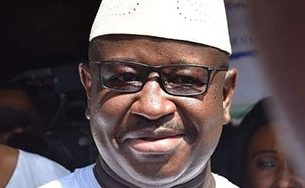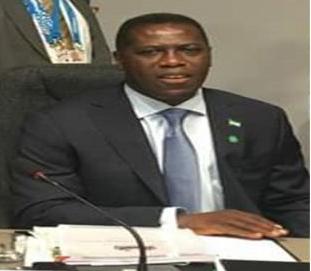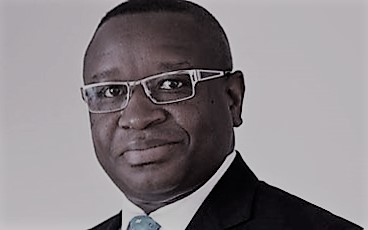Sierra Leone : 50 Long Years
As I sit in front of the television, eagerly waiting to watch the news on Sierra Leone ‘s 50th anniversary of independence (27th April 1961- 2011) as the celebrations are underway in the country, I am truly disappointed. Disappointed because as I flip through the TV channels such as BBC and CNN, they seem to be saturated with news on the ‘Royal Wedding’ while Britain ‘s former colony – Sierra Leone – is hardly mentioned in the news. A classic case of distilling the news – churning out “newsworthy” from “not so newsworthy”. How far has this tiny West African country come almost a decade after the conflict ended in 2002 does not seem to concern a number of leading news channels nor does its 50th anniversary of independence from the British rule. This aside, let’s take a glimpse into post independence Sierra Leone.
Sierra Leone or Serra de Leao (Lion mountains) as it was referred to by the Portuguese explorers, gained independence from Britain on 27th April 1961. The immediate post-colonial era, from 1961-1968, was marked by a power struggle between the two political factions: the Sierra Leone People’s Party (SLPP) and the All People’s Congress (APC). During the 1970s and 1980s the key political leaders, ex-president Siaka Stevens in particular, exploited the state centralising power in their own hands. After the rule of Stevens and the presence of a single political party (APC) from 1971-1985, Sierra Leoneans were all set for multi-party government. However, in 1985 Major General Joseph Momoh was elected who opposed multi-party expression and this in turn fueled the onset of conflict in Sierra Leone .
The conflict began in 1991, when a group of individuals called the Revolutionary United Front (RUF) marched into Sierra Leone from Liberia. The RUF was led by Foday Sankoh, a disgruntled former Sierra Leone Army (SLA) corporal. Sankoh received training in Libya and was supported by Liberia ‘s Charles Taylor. In 1987-1988, between 35 to 100 individuals from the student groups, along with Taylor, and Sankoh, and other warlord kinds, left for Benghazi, Libya, to train in the revolutionary schools of Gaddafi, the Libyan leader. Although, most of those people who actually wanted to transform Sierra Leone soon dropped out when they realised that Sankoh and his allies were pillaging money and usurping the movement for Taylor ‘s interests. The RUF wreaked much havoc in the country. Large numbers of people were amputated and the RUF engaged in massive forced recruitment of young people. Other groups which forcibly recruited children include Armed Forces Revolutionary Council (AFRC) and Civil Defense Force (CDF) or Kamajors (mostly in the south of the country). Sierra Leone ‘s diamond wealth helped sustain the conflict.
In January 2002, subsequent to the countrywide conclusion of the disarmament process in Sierra Leone, the brutal war came to an end. Since 2002, Sierra Leone has managed to make considerable progress in re-establishing governance structures and sustaining peace in the country. Freetown, the capital, appears to be normal and safe to travel around and so does most of the country. Although most people I interacted with are satisfied with the current APC government headed by Ernest Bai Koroma, yet beneath the semblance of peace, discontent seems to be growing among many young people due to high rate of youth unemployment. Moreover, with 53% of the 2011 budget financed by grants, Sierra Leone is still largely dependent on aid. On the positive side, Sierra Leone is opening up to tourism. Since 2007 when he came to power, President Koroma has been on a drive to attract investment. The International Monetary Fund predicts GDP to grow at 5.2 % in 2011 and 6% in 2012. Besides, a number of former child combatants in Sierra Leone have reintegrated into society, however, many are still facing hardships or have not been accepted by their families or communities.
In post war Sierra Leone, reintegration of ex combatants including ex child soldiers within the community has been a major challenge. While many ex child combatants I interviewed in Sierra Leone at the Lumley car wash in Freetown; Makeni, Bombali district; Koidu Town, Kono district; and Moyamba, Moyamba district were disgruntled with the official Disarmament, Demobilisation and Reintegration (DDR) programme in the country, there were also those who were satisfied with the DDR. Most ex combatants I interacted with at the Lumley car wash (Freetown ) were disappointed with the DDR. Samuel Davis (interviewed at Lumley car wash) who was captured by the RUF at the age of 10 says, DDR was not beneficial for him while Amir Aziz (interviewed at Pademba Road , Freetown ) who was forcibly recruited by the RUF says he is happy with DDR and his parents and the community accepted him after the war. Idrissa Conteh (interviewed at Lumley car wash) who was captured by the RUF when he was around 12 says the villagers did not accept him after the war while Balu (interviewed at Makeni, Bombali district) who was forcibly recruited by the RUF at 11 years of age says her stepmother did not accommodate her, however, the community accepted her.
Bangura, former DDR project officer, believes, DDR, to a large extent was successful. However, he continues, it was short-lived, not well organised and well financed and there are no monitoring mechanisms to assess former child combatants’ post conflict situation and they have almost diffused within the community. On the whole it may be argued, while the reintegration of former child combatants into civilian life is still continuing, Sierra Leone has come a long way since its independence from the British rule and the 1991-2002 conflict in the country. It is notable that Sierra Leone like a number of post conflict countries in Africa and elsewhere did not relapse into conflict. As I interacted with the people of Sierra Leone- ex combatants including ex child soldiers, war amputees, civilians during the war and various national and international NGOs, I realised its the resilience of Sierra Leoneans that has helped them come this far.
By Meha Dixit, India
Meha Dixit is a Research Scholar CIPOD, SIS Jawaharlal Nehru University, India. Meha’s research topic is Human Security and Post conflict Reintegration of Child Soldier : Disarmament Demobilisation Reintegration (DDR) Programmes in Mozambique and Sierra Leone.
http://countercurrents.org/dixit300411.htm
Stay with Sierra Express Media, for your trusted place in news!
© 2011, https:. All rights reserved.






